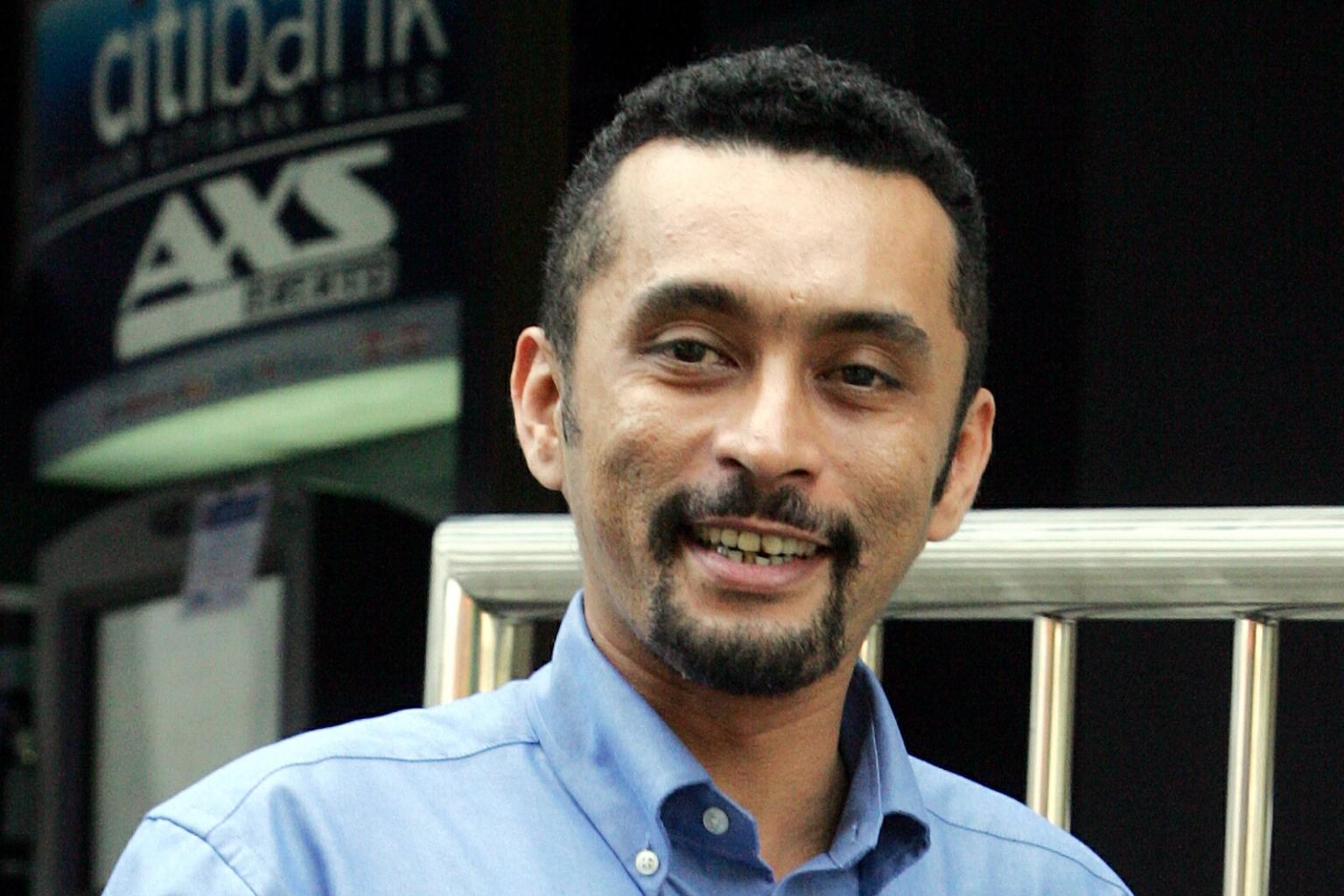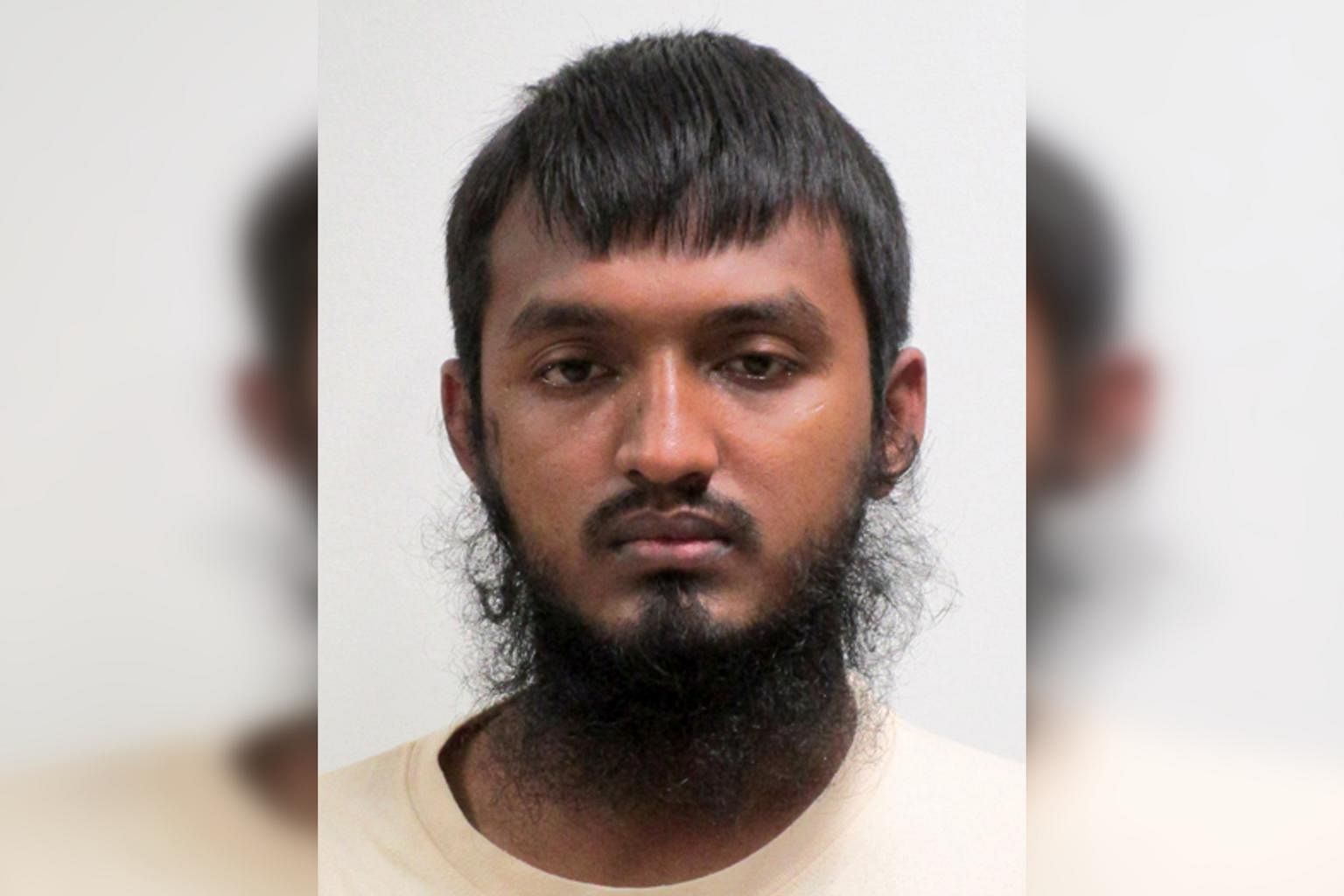Singaporean man detained under ISA for involvement in Yemen civil war, working for foreign power: ISD
Sign up now: Get ST's newsletters delivered to your inbox

Sheik Heikel Khalid Bafana had assisted one of the factions in the Yemen civil war after migrating there, said the ISD.
PHOTO: ST FILE
SINGAPORE - A Singaporean man has been detained under the Internal Security Act for taking part in the Yemen civil war and working for a foreign power as a paid agent while in the Middle Eastern country, said the Internal Security Department (ISD).
In a statement on Wednesday (Dec 9), the ISD said Sheik Heikel Khalid Bafana, 48, who was detained in March last year, had acted in a manner prejudicial to Singapore's security and interests.
In disclosing the case, the ISD emphasised Singapore's "stern stand against anyone who supports, promotes, undertakes, or makes preparations to undertake armed violence".
Giving an update on earlier cases, the ISD said radicalised Bangladeshi Ahmed Faysal was issued with a Detention Order on Nov 30.
It added that three Singaporeans who were previously detained under the Internal Security Act have been released and placed on Restriction Orders (ROs). ROs issued against another five were allowed to lapse, as they had shown good progress in their rehabilitation.
Heikel had assisted one of the factions in the civil war after migrating to Yemen with his family around 2008, said the ISD.
He volunteered to take up arms and fight alongside this faction, which the ISD did not identify. An ISD spokesman said in response to ST's queries that he first had the intention to engage in armed violence in 2017.
While in the war-torn country, he ran a consultancy which advised foreign companies on security risks and business opportunities. Online checks showed he was the managing director of Bafana Advisory.
The ISD said Heikel had also acted as a broker between this faction and the foreign power, which was also not named. He had sought to secure military equipment, supplies and funds to conduct military training.
He also collected intelligence on Yemen for this foreign power from around 2012 to 2018, for which he was paid "substantial amounts", said the ISD. His dealings with the foreign power were clandestine in nature.
The ISD said it did not disclose Heikel's case earlier, as investigations into his activities in Yemen were complex, and doing so would have jeopardised ongoing investigations.
On those who support or undertake armed violence or make preparations to do so, the ISD said: "Regardless of how they rationalise such violence ideologically, or where the violence takes place, such a person has demonstrated a dangerous tendency to support the use of violence."
Heikel compounded this by serving the interests of a foreign power for financial gain, it added, noting he had stayed on in Yemen after 2011 as the security situation deteriorated, even when other Singaporeans were evacuated.
He was arrested under the ISA after he and his family returned to Singapore on Feb 5 last year. His family members have not been implicated in his activities in Yemen, added the ISD.
Asked how Heikel had attracted ISD's attention, the spokesman said that he had made social media postings suggesting that he was involved in the armed conflict in Yemen.
"For instance, he had posted a photograph of himself in military gear with a submachine gun, as well as other postings suggesting involvement in or support for armed violence," added the spokesman.
Dr Mohamed Ali, who is vice-chairman of the Religious Rehabilitation Group, told The Straits Times that the effective use of the Internal Security Act for early intervention has prevented many from sliding into the path of radicalism.
The potential or planned use of violence is an accepted criterion for someone to be detained, he said, adding that there cannot be any compromise as violence is a violation of the basic human right to feel safe.
"Furthermore, anyone with a religious or political agenda utilising violence as a means should rightfully be given the assistance and opportunity to reflect, learn and understand why it is never a solution to their goals," said Dr Ali, who is an assistant professor at the S. Rajaratnam School of International Studies.
The release of three people from detention into ROs and ROs being allowed to lapse for another five were a clear indication that the rehabilitation programme for such detainees in Singapore is a viable solution, he added.
Detention of Ahmed Faysal

Bangladeshi worker Ahmed Faysal was arrested on Nov 2 under the Internal Security Act.
PHOTO: MINISTRY OF HOME AFFAIRS
Radicalised Bangladeshi Ahmed Faysal, 26, whose arrest was announced last month, was issued with an Order of Detention under the ISA on Nov 30 to facilitate ongoing investigations into his terrorism-related activities.
Faysal was among 37 people investigated by the ISD and police, after the Home Team raised its security posture in early September following a spate of terror attacks in France after the re-publishing of cartoons of Prophet Muhammad by satirical magazine Charlie Hebdo.
Preliminary investigations had found that Faysal had intended to carry out acts of armed violence overseas in support of his religion, although there was no indication he had intended to carry out violent acts in Singapore.
He had been working as a construction worker in Singapore since early 2017, and was radicalised in 2018 after imbibing online propaganda on the Islamic State in Iraq and Syria (ISIS).
Released from detention
Three Singaporeans detained under the ISA for involvement in terrorism-related activities have been released and placed on Restriction Orders, said the ISD.
They had shown good progress in their rehabilitation and were assessed to no longer pose a security threat requiring preventive detention.
The three Singaporeans are:
- Muhammad Fadil Abdul Hamid, 31, a self-radicalised individual who was detained from 2010 to 2012 for intending to engage in armed violence in Afghanistan. He was released in 2012 and placed on an RO, but was detained again in April 2016 after investigations showed he had reverted to the belief that militant jihad was the easiest way to achieve martyrdom. He had also harboured the intention to fight alongside ISIS or other militant groups in Syria. He was released on an RO in April.
- Husaini Ismail, 61, a former Jemaah Islamiyah (JI) member detained in June 2012, following his deportation to Singapore from Indonesia a month earlier. Husaini had fled Singapore in the wake of security operations against the JI network in December 2001. While on the run, he was involved in the plot to hijack an airplane and crash it into Changi Airport in January 2002. He was released on an RO in June.
- Rosli Hamzah, 54, a self-radicalised individual who was detained in August 2016. He had harboured the intention to travel to Syria to fight alongside ISIS, and was released on an RO in August.
Lapse of Restriction Orders
Restriction Orders issued against another five Singaporeans were also allowed to lapse upon expiry, as they had shown good progress in their rehabilitation, said the ISD.
They are:
- Mohamed Mohideen Mohamed Jais, 30, who performed armed sentry duties in Yemen while pursuing religious studies there from 2009 to 2011. He was issued with an RO in March 2016, and it was allowed to lapse in March this year.
- A self-radicalised Singaporean ISIS supporter who was 17 in July 2016 when he was issued with an RO. His RO was allowed to lapse in July. The ISD did not reveal his name.
- Mohamad Reiney Noor Mohd, 30, a self-radicalised individual who started supporting ISIS after coming across its propaganda online. He was issued with an RO in August 2016, and it was allowed to lapse in August.
- Asrul Alias, 37, a self-radicalised individual who actively searched for pro-ISIS material online and shared them on Facebook and WhatsApp to spread its ideology. He was issued with an RO in August 2016, and it was allowed to lapse in August.
- Ishak Mohamed Noohu, 59, a former JI member who was detained in November 2006 and released on an RO in November 2012. He had fled Singapore in the wake of security operations against the JI network in December 2001. While on the run, he was involved in the plot to hijack an airplane and crash it into Changi Airport in January 2002. His RO was allowed to lapse in October.


